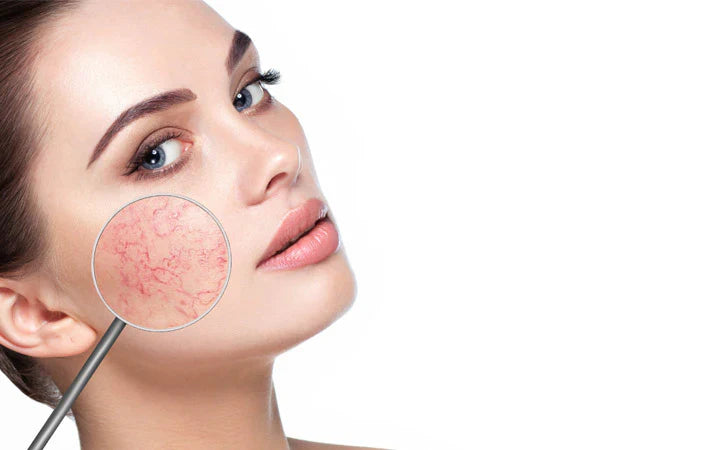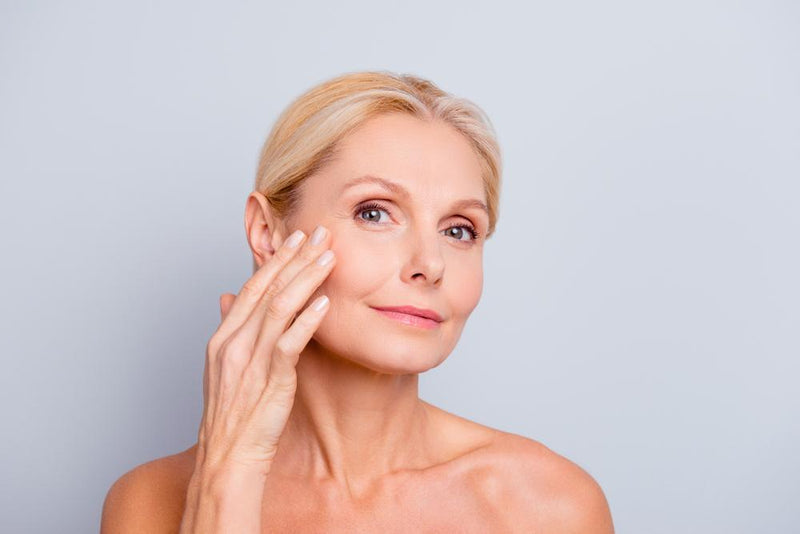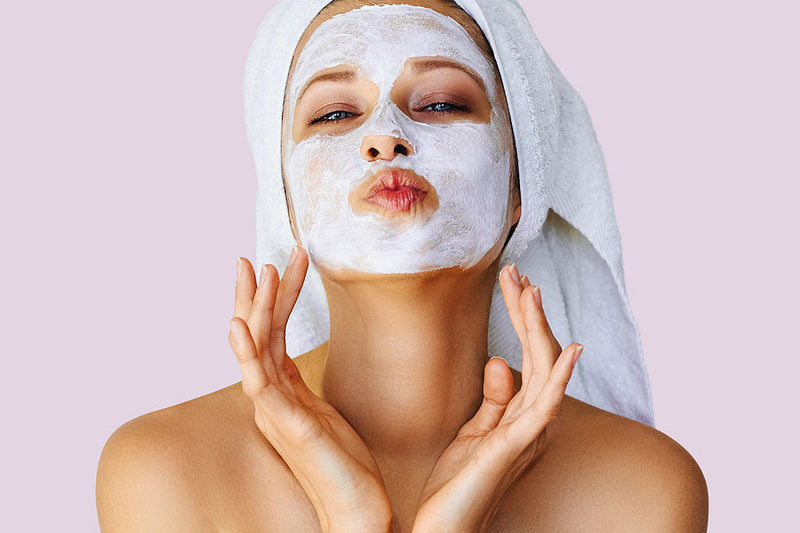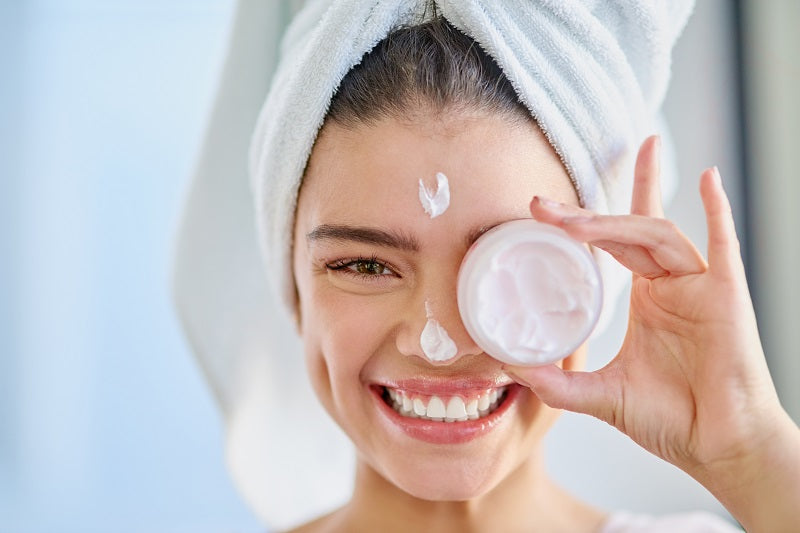

The Skin Microbiome Revolution: Why Good Bacteria Are the Future of Skincare
For decades, the skincare industry has been dominated by products designed to eliminate bacteria from our skin. Antibacterial soaps, harsh cleansers, and aggressive exfoliants promised clearer, healthier skin by wiping out all microbial life. But what if we've been approaching skin health all wrong? What if the key to truly radiant, resilient skin isn't about killing bacteria—but nurturing the right kinds?
Welcome to the skin microbiome revolution, where good bacteria are taking center stage as the future of skincare. This paradigm shift is transforming how we understand skin health, moving away from the war-on-germs mentality toward a more sophisticated, science-backed approach that recognizes the vital role our microbial allies play in maintaining skin barrier function, preventing inflammation, and protecting against environmental stressors.
Understanding the Skin Microbiome: Your Invisible Ecosystem
The skin microbiome refers to the complex community of microorganisms—including bacteria, fungi, viruses, and mites—that live on the surface of our skin. Far from being passive hitchhikers, these microscopic residents form a sophisticated ecosystem that works in harmony with our skin cells to maintain optimal health. Think of your skin microbiome as a bustling city where different microbial species have specific roles and responsibilities, all contributing to the overall well-being of their host—you.
Research has revealed that a healthy skin microbiome typically contains hundreds of different bacterial species, with the majority belonging to four main phyla: Actinobacteria, Firmicutes, Proteobacteria, and Bacteroidetes. Among these, certain beneficial bacteria like Staphylococcus epidermidis, Cutibacterium acnes (formerly Propionibacterium acnes), and various Lactobacillus species play crucial roles in maintaining skin homeostasis.
A balanced skin microbiome acts as your skin's first line of defense, producing antimicrobial peptides that protect against harmful pathogens while simultaneously supporting your skin's natural barrier function and immune response.
The Problem with Traditional Skincare Approaches
Conventional skincare products have often taken a scorched-earth approach to skin health, using ingredients that indiscriminately kill both harmful and beneficial bacteria. Harsh surfactants strip away natural oils, antibacterial agents eliminate microbial diversity, and over-exfoliation disrupts the delicate skin barrier. While these approaches might provide temporary relief from certain skin concerns, they ultimately create an environment where problematic bacteria can thrive unchecked.
When we disrupt the natural balance of our skin microbiome, we create what scientists call "dysbiosis"—an imbalance that can lead to a cascade of skin issues including acne, eczema, rosacea, psoriasis, and increased sensitivity. The irony is that many of the very products designed to treat these conditions may actually be contributing to their persistence by further damaging the microbial ecosystem that should be protecting us.
Good Bacteria: Nature's Skincare Solution
Beneficial bacteria on our skin perform numerous essential functions that contribute to overall skin health:
- Barrier Support: Good bacteria help maintain the skin's acid mantle, a slightly acidic environment (pH 4.5-5.5) that prevents colonization by harmful pathogens
- Immune Regulation: They communicate with our immune system to modulate inflammatory responses and prevent overreactions to environmental triggers
- Nutrient Production: Certain bacteria produce vitamins and other compounds that nourish skin cells and support cellular function
- Pathogen Defense: Beneficial microbes compete with harmful bacteria for resources and space, effectively crowding out potential invaders
- Wound Healing: Some bacterial species accelerate the healing process by promoting tissue regeneration and reducing inflammation
This natural, symbiotic relationship between our skin and its microbial residents represents millions of years of co-evolution. Rather than fighting against this system, the future of skincare lies in working with it—supporting and enhancing the functions that good bacteria already perform so effectively.
The Rise of Probiotic and Prebiotic Skincare
As scientific understanding of the skin microbiome has advanced, skincare innovators have begun developing products specifically designed to support microbial health. This has given rise to two main categories of microbiome-friendly skincare:
Probiotic Skincare
Probiotic skincare products contain live beneficial bacteria or their lysates (broken-down bacterial cells) that can help restore microbial balance. These products work by introducing helpful bacterial strains directly to the skin, where they can establish themselves and begin performing their protective functions. Common probiotic strains used in skincare include Lactobacillus, Bifidobacterium, and Streptococcus thermophilus.
Prebiotic Skincare
Prebiotic skincare takes a different approach by providing nutrients that feed the beneficial bacteria already present on your skin. Instead of introducing new bacteria, prebiotic products create an environment where your existing good bacteria can flourish. Common prebiotic ingredients include inulin, fructooligosaccharides (FOS), and various plant-derived sugars that serve as food sources for beneficial microbes.
Both approaches have shown promising results in clinical studies, with users reporting improvements in skin hydration, reduced inflammation, fewer breakouts, and enhanced overall skin resilience.
Scientific Evidence Supporting the Microbiome Approach
The skin microbiome revolution isn't just marketing hype—it's grounded in solid scientific research. Multiple studies have demonstrated the critical role that microbial balance plays in skin health:
- A 2023 study published in the Journal of Investigative Dermatology found that individuals with healthy skin microbiomes had significantly better barrier function and lower rates of inflammatory skin conditions
- Research from the National Institutes of Health revealed that topical application of specific probiotic strains reduced acne lesions by 40% compared to placebo treatments
- A clinical trial involving patients with atopic dermatitis showed that prebiotic skincare products improved symptoms in 78% of participants within four weeks
- Longitudinal studies have demonstrated that microbial diversity correlates strongly with skin aging, with more diverse microbiomes associated with younger-looking skin
These findings have led to increased interest from both academic researchers and major skincare companies, resulting in a new generation of products that prioritize microbiome health over aggressive cleansing and exfoliation.
How to Support Your Skin Microbiome Naturally
Beyond specialized skincare products, there are several lifestyle and routine changes you can make to support your skin's microbial ecosystem:
- Gentle Cleansing: Use mild, pH-balanced cleansers that don't strip away natural oils or disrupt microbial balance
- Avoid Over-Exfoliation: Limit physical and chemical exfoliation to 1-2 times per week maximum to prevent barrier damage
- Moisturize Strategically: Choose moisturizers with prebiotic ingredients or ceramides that support barrier function
- Diet Matters: Consume a diverse, fiber-rich diet that supports gut health, which in turn influences skin microbiome health
- Minimize Antibacterial Products: Avoid hand sanitizers and cleansers containing triclosan or other broad-spectrum antimicrobials
- Embrace Diversity: Expose yourself to natural environments and diverse microbial sources when possible
The key principle is balance—creating conditions where beneficial bacteria can thrive while naturally suppressing problematic species through competition rather than chemical warfare.
The Future of Microbiome-Focused Skincare
As research continues to uncover the complex relationships within the skin microbiome, we can expect even more sophisticated approaches to emerge. Personalized microbiome testing may soon allow individuals to receive customized skincare recommendations based on their unique microbial profile. Advanced delivery systems could ensure that beneficial bacteria survive the journey from product to skin surface. And next-generation formulations might include postbiotics—beneficial compounds produced by bacteria—that provide targeted benefits without requiring live organisms.
Major skincare brands are already investing heavily in microbiome research, with several launching dedicated probiotic and prebiotic product lines. Regulatory agencies are beginning to develop guidelines for microbiome-friendly claims, ensuring that consumers can make informed choices about products that truly support microbial health.
Embracing the Microbiome Revolution
The skin microbiome revolution represents a fundamental shift in how we approach skincare—from viewing bacteria as enemies to be eliminated, to recognizing them as essential partners in maintaining skin health. By supporting the good bacteria that naturally reside on our skin, we can achieve more resilient, balanced, and radiant skin without resorting to harsh, disruptive treatments.
As consumers become more educated about the importance of microbial balance, the demand for truly microbiome-friendly products will continue to grow. This isn't just a passing trend—it's a scientifically-grounded evolution in skincare that promises to deliver better results with gentler, more sustainable approaches.
The future of skincare is here, and it's teeming with life. By embracing the power of good bacteria and working with our skin's natural ecosystem rather than against it, we can unlock a new era of skin health that's as sophisticated as it is effective. The skin microbiome revolution isn't just changing how we care for our skin—it's transforming our fundamental understanding of what healthy skin truly means.


















